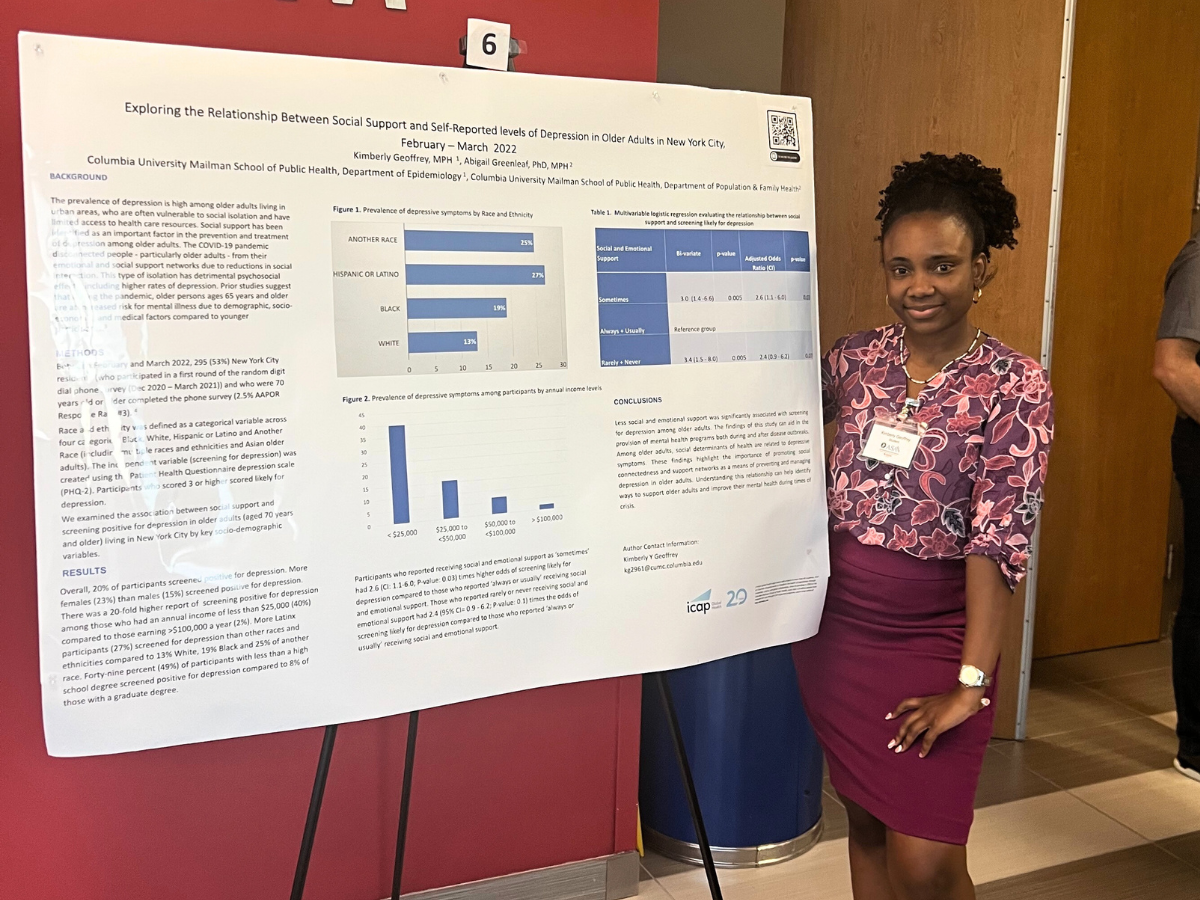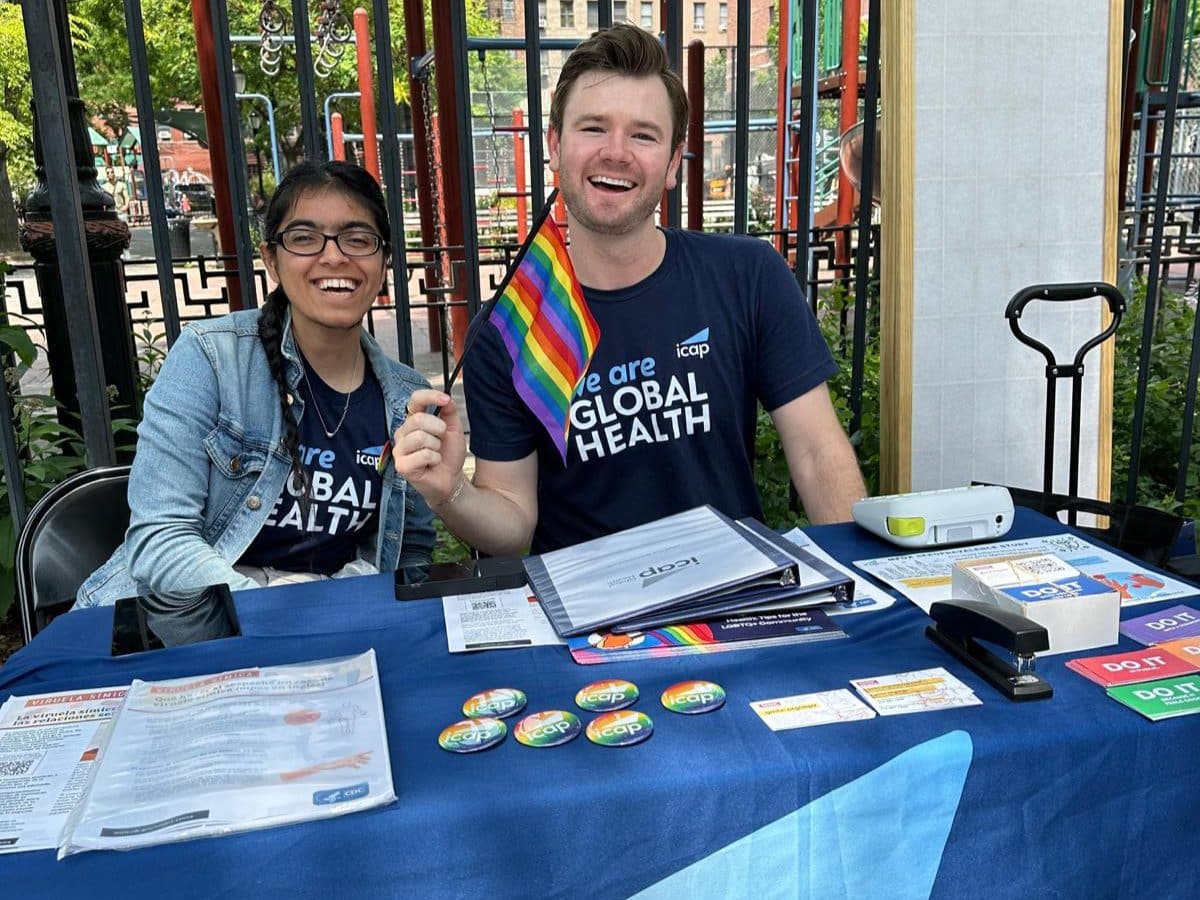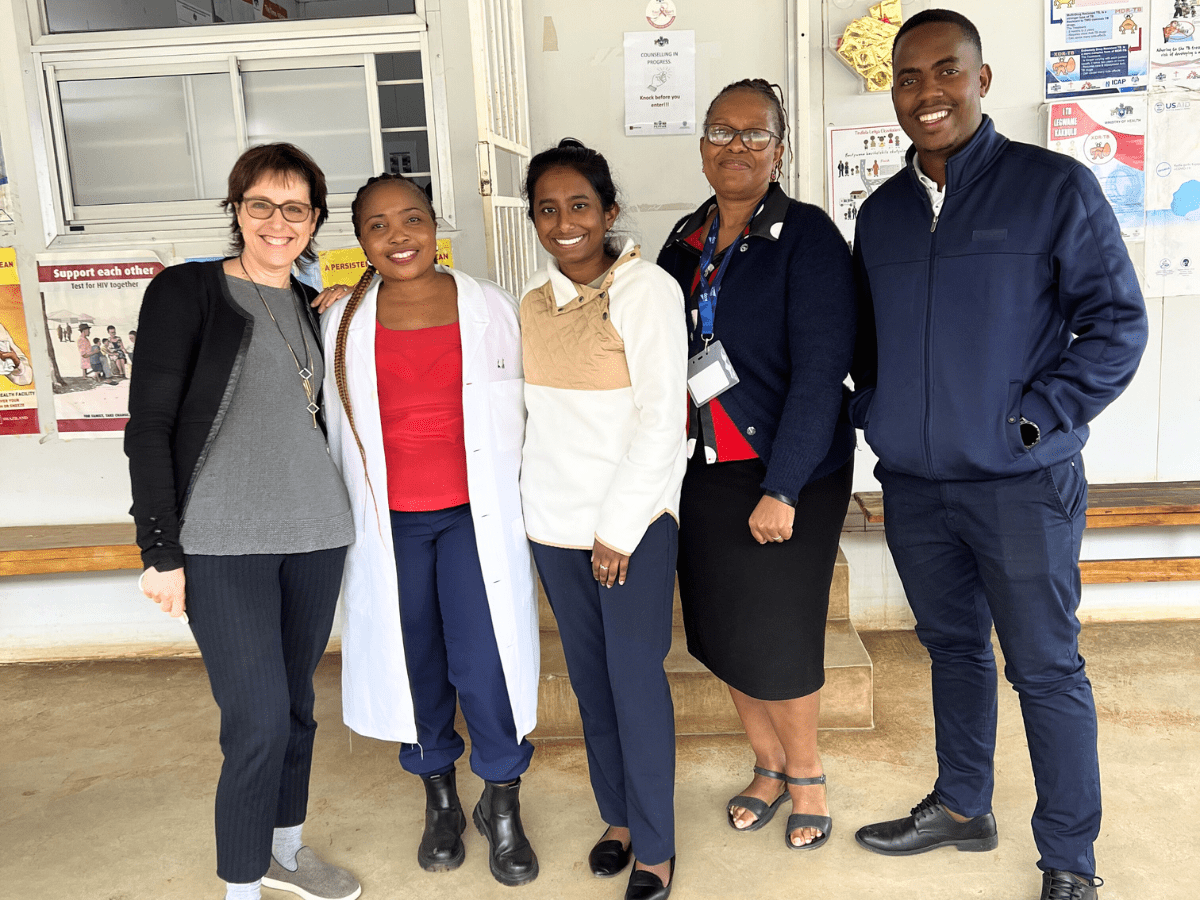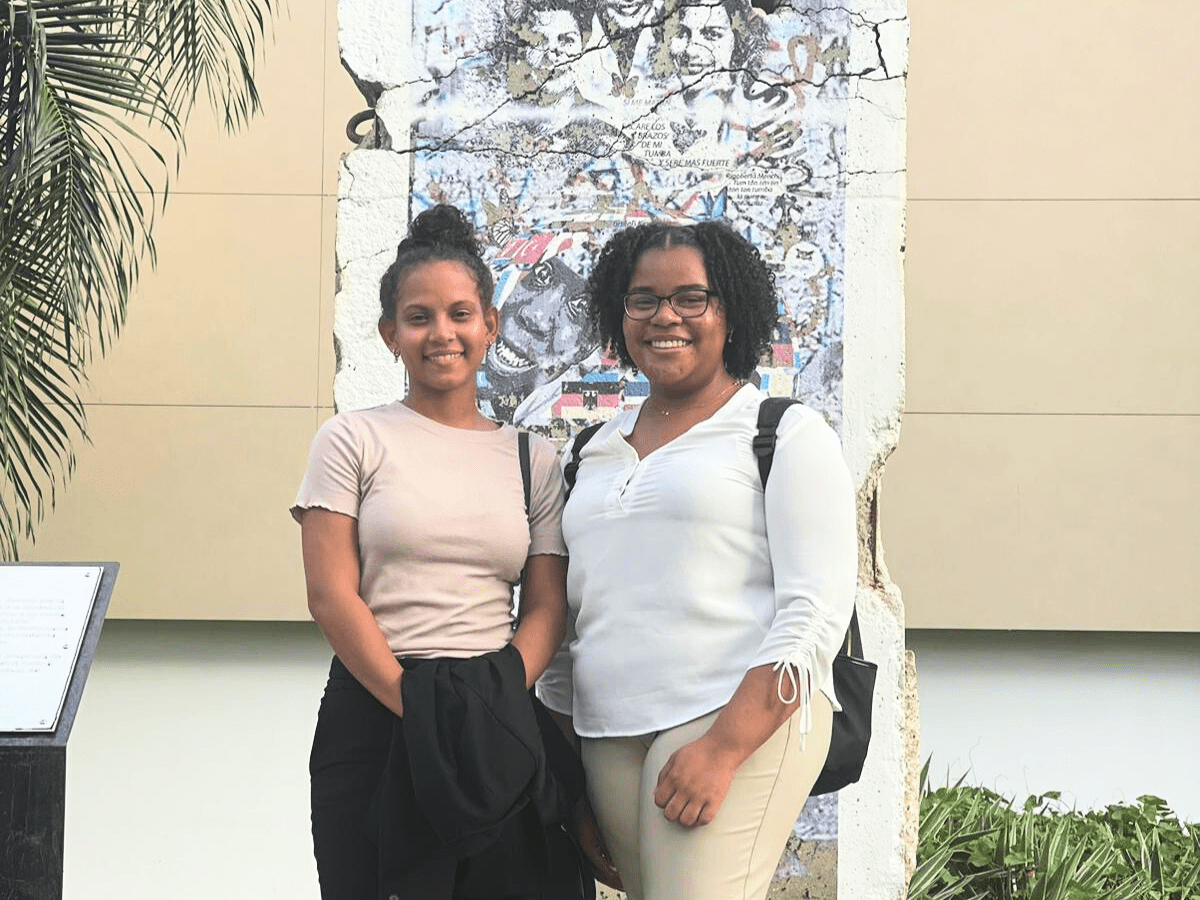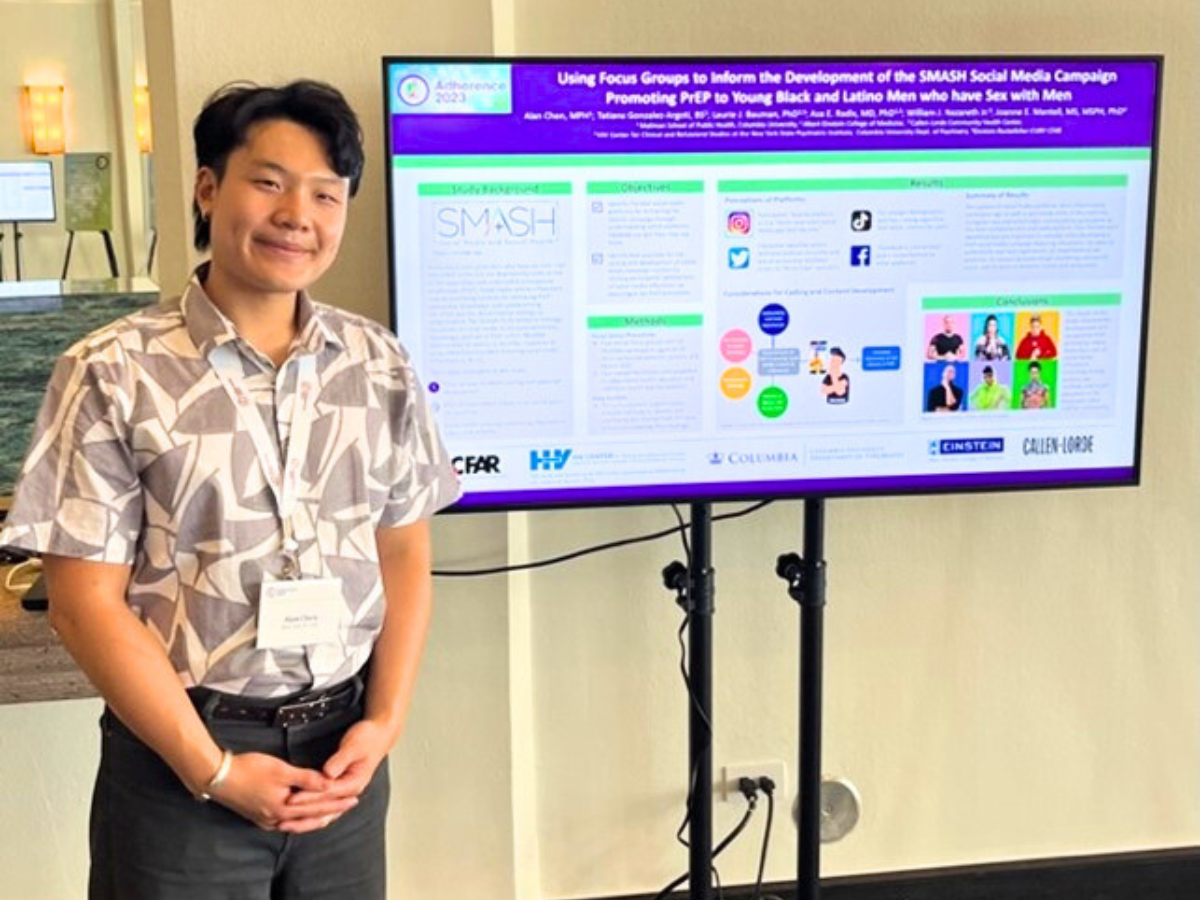Working as a contact tracer during the onset of COVID-19, my eyes were opened to the profound impact the pandemic could have on communities. My passion to address public health challenges was ignited when I witnessed the virus’s relentless spread and its effects on individuals and families. The SILVER project at ICAP caught my attention, as it focused on the impact of COVID-19 among older adults in New York City. As a master’s student in the Public Health in Epidemiology department at Columbia University, I was afforded the opportunity to get involved with ICAP at Columbia University’s Next Generation Internship and be a part of the organization’s SILVER research study – and more importantly, potentially make a difference in the lives of older adults in New York City, an incredibly vulnerable population.
Through the internship, I collaborated with like-minded individuals – particularly with the SILVER team, who were incredibly motivating – who shared my passion for public health and data. I worked with Dr. Abigail Greenleaf as my supervisor, whose expertise, dedication, and genuine passion for public health inspired me on multiple levels. Dr. Greenleaf went above and beyond in facilitating opportunities for my professional development. For example, recognizing my interest in enhancing my SAS (statistical software) skills, she connected me with experienced data analysts at ICAP.
During this journey, I honed my research and data analysis skills by contributing to the write-up of a summary sheet that captured the findings of the SILVER 2 study. I conducted literature reviews on the impact of COVID-19 on mental health among older adults in the United States from 2020 to the current date. Through this process, we found that the pandemic significantly affected the mental well-being of older adults, highlighting the importance of targeted support and interventions during such challenging times. Additionally, I aided in drafting and mailing out a newsletter to the participants of the study. This initiative aimed to maintain communication with the participants, showing appreciation for their involvement and encouraging their continued participation in the study.
Being part of the SILVER team allowed me to contribute to research with real world implications for vulnerable populations. Overall, we found that more Latinx participants reported that their emotional and mental health was affected by the COVID-19 pandemic. The dataset from the SILVER 2 study formed the basis of my thesis, which I plan to develop into a manuscript for publication in journals soon.
As a result of the SILVER 2 study data I contributed to, I was awarded an opportunity to present my thesis at the Quality & Productivity Research Conference (QPRC) 2023, held as part of the American Statistical Association’s annual event in Houston, Texas. This experience both elevated my confidence and provided me a platform to connect with numerous professionals who share a passion for statistics and its powerful applications in public health.
Throughout the conference, I engaged in insightful discussions, attending thought-provoking presentations and networking with experts from diverse disciplines. One presentation that stood out to me was called “Measuring Health Care Quality during a Workforce Upheaval.” The speaker discussed the challenges faced by health care systems during times of workforce disruption, emphasizing the need to measure and assess health care quality. She explored statistical methodologies and measures used to evaluate health care quality and highlighted the importance of adapting measures to address unique circumstances. Interactions like these were incredibly enriching, as they exposed me to perspectives and innovative approaches that continue to shape statistical methodologies and public health research.
My journey as a university student in public health has been transformative. Surrounding myself with dedicated individuals has inspired me to explore new opportunities and avenues for growth in the ever-evolving landscape of global health, such as seeking innovative projects and engaging in collaborative efforts with passionate professionals. I would definitely encourage my peers to embrace opportunities like attending conferences within their field and interests. These events offer a gateway to networking, connecting you with like-minded individuals, and providing valuable insights from professionals. I am grateful for the support and knowledge provided by the Next Generation Internship program, which has played a pivotal role in shaping my growth as a future public health professional. I am eager to carry forward the lessons learned, and the meaningful relationships formed.
Kimberly Y. Geoffrey
MPH in Epidemiology, Mailman School of Public Health
Certificate in Health Policy & Practice
Next Generation Intern


